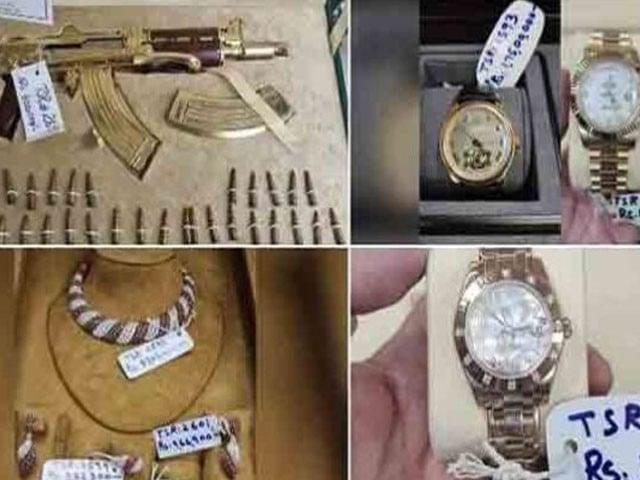Pakistan has witnessed several controversies surrounding the donations received from foreign dignitaries, commonly called Toshakhana (state gift standard). Last year, the former Prime Minister and founder of Pakistan Tehreek-E-insaf (PTI), Imran Khan, was sentenced to 14 years in prison in relation to a reference case in Toshakhana.
In response, the federal government has drawn up new regulations concerning Toshakhana, which include a proposal aimed at prohibiting heads of state or government officials from accepting gifts during trips abroad.
These new rules, once approved by the federal office, will demand Pakistani diplomats abroad to ensure the implementation of this policy in the countries where they are stationed.
During a briefing on the public account committee of the Parliament, the secretary of the cabinet, Kamran Ali Afzal, explained that by virtue of the current rules, gifts are accepted during trips abroad.
However, a new complete policy is being formulated, which suggests that civil servants should not accept gifts during these trips. AFZAL added that countries around the world have variable policies in Toshakhana.
“In the Middle East countries, the law governing Toshakhana is liberal, while in the United States and the United Kingdom, there are limits to the value of the gifts that can be accepted,” he said.
Analysts argue that the refusal or the ban on receiving gifts from foreign nations goes against diplomatic standards. Instead, they argue for transparency in the system for the deposit and purchase of gifts via Toshakhana.
Analyst Majid Nizami said that the exchange of donations between heads of state and during diplomatic meetings is a long -standing tradition.
“To avoid disputes, prohibiting gifts under these rules is not a solution; instead, it is necessary to make the system of deposit and purchase of gifts in Toshakhana more transparent,” he said.
Nizami also specified that the heads of state receive gifts because of their position, not because of their personal identity. “Gifts received from abroad are a representation of the state, not the individual,” he said.
He highlighted the importance of transparency in the Toshakhana system, in particular to determine the value of donations, which should be based on their real value.
“There is nothing wrong with receiving or giving gifts. The government should establish clear rules to receive gifts and buy them in Toshakhana, eliminating any ambiguity,” added Nizami.
According to Rana Ghulam Qadir, journalist and analyst who monitors the questions related to Toshakhana, the controversy surrounding Toshakhana regulations began when the previous heads of state were authorized to pay part of the value of foreign gifts to keep it, while low -value gifts could be kept without payment. This privilege has been widely used by government representatives.
Qadir noted that the Government of the Democratic Movement of Pakistan (PDM) had rendered the strict Toshakhana rules, forcing civil servants to deposit expensive gifts exceeding a certain value in Toshakhana and paying gifts of low value if they wanted to keep them.
Qadir has also criticized the new proposal to prevent heads of state from receiving gifts, appealing to the diplomatic label. “It is not only our leaders who refrain from accepting gifts abroad; we also present gifts to foreign dignitaries by visiting Pakistan,” he explained.
He suggested that instead of stopping practice, the government should focus on the guarantee that all gifts received are transparent in Toshakhana.
He also proposed that the government sells the gifts stored in Toshakhana at auction and deposit the product of the national treasury. The funds could then be used to present gifts to foreign visitors coming to Pakistan.




